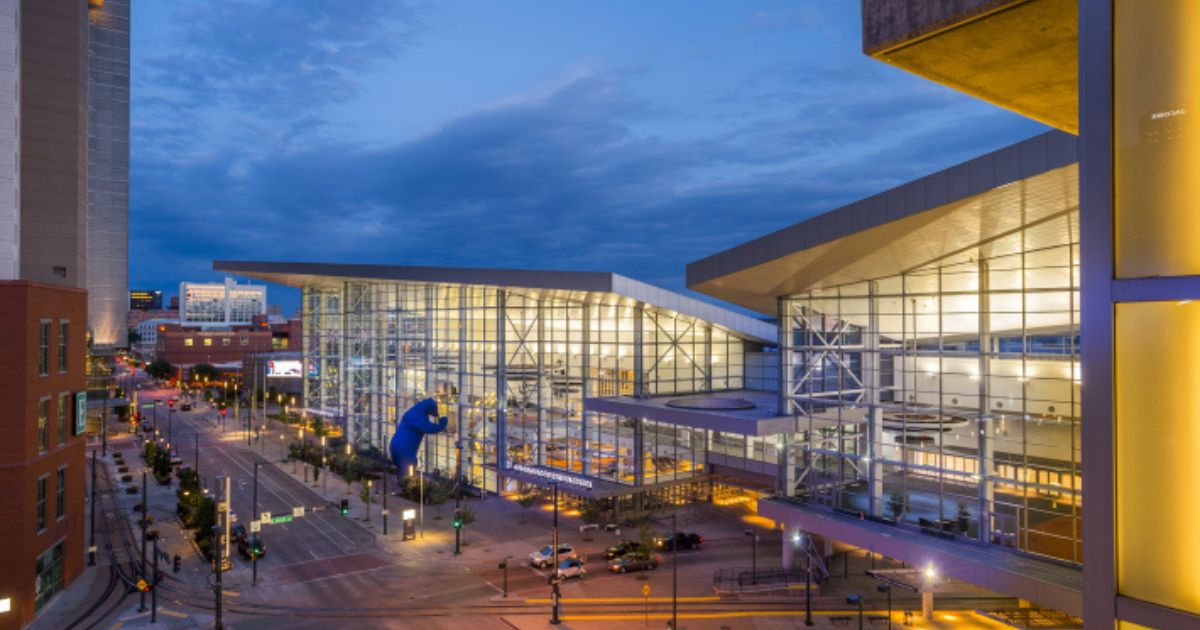Plan your next meeting in
Colorado
Start Researching
Start Planning
Checklist for Sustainable Meetings and Events
By Beth Buehler
Sustainability is gaining serious traction in the planning and execution of meetings and events.
In a February survey of 367 meeting professionals conducted by Smart Meetings, respondents ranked sustainability as a major priority when choosing a destination. In fact, 42% always or usually include questions about sustainability in their requests for proposals. The biggest request is ethically and locally sourced ingredients and established protocols for minimizing food waste followed by recycling programs that go beyond divided containers and considerations regarding distance traveled by attendees and ground transportation upon arrival.
Nearly half of planners look for a building and city that is LEED certified (46%) and energy efficient (45%). This is a fact that bodes well for Colorado that is flush with communities and residents interested in taking care of the state’s resources. I’ll use Denver as an example, with a primary focus on the LEED Gold-certified Colorado Convention Center, which is adding an 80,000-square-foot, column-free ballroom/multipurpose room and outdoor rooftop that is slated for completion in late 2023.
To help guide your group’s efforts, here is checklist for sustainable meetings and events from the Denver Arts & Venues Sustainable Event Planning Guide. Denver Arts & Venues manages the Colorado Convention Center, Denver Performing Arts Complex, Red Rocks Park and Amphitheatre, McNichols Civic Center Building and Denver Coliseum. All these facilities are available to host meetings and events.
SUSTAINABLE EVENT CHECKLIST
Leadership and Communication
- Develop a written environmental sustainability policy, signed by executive or general manager.
- Designate one or more staff members to implement the event sustainability initiatives.
- Set defined environmental performance outcomes for event and communicate with suppliers and stakeholders.
- Integrate practices early on in the planning process and get all your staff and suppliers on board.
- Request and track event metrics from suppliers year to year and event to event.
Waste Management
- Set clearly labeled recycling bins next to all landfill bins.
- Offer online registration.
- Replace conference program with a mobile app.
- When printing is necessary, print on postconsumer content recycled paper.
- Offer event swag as optional for attendees rather than pre-stuffing conference bags.
- Request sponsors and exhibitors only provide giveaways that are useful past the conference.
- Eliminate foam core signage, as it is not recyclable. Instead request recyclable cardboard signage.
- Create non-dated signs to allow for easy reuse at future events.
- Reuse lanyards and collect post event.
Food and Beverage
- Provide bulk water filling stations instead of individual plastic water bottles.
- Require vendors to use compostable utensils, plates and cups and ensure availability of proper disposal.
- Eliminate Styrofoam completely.
- Provide condiments in bulk containers to avoid individual packets
- Offer vegetarian and vegan meal options.
- Work with your chef to create a meal that is in season in the local community.
- Request leftover food items be donated to a local nonprofit.
Energy
- Educate staff, vendors and volunteers and require that all nonessential lighting, equipment and machines be turned off when not in use and after hours.
- Rent office equipment that is Energy Star rated and EPEAT-certified
- If using generators, look for alternatives to diesel such as solar powered.
Transportation and Air Quality
- Instruct all vendors, exhibitors, busses and transportation companies to adhere to the city’s anti-idling vehicle policy.
- Promote alternative transportation methods for getting to and from the event such as ride sharing, carpooling, light rail, bike riding and even walking.
- Provide attendees with information on how to get to the event through alternative transportation on the event website.
MORE SUSTAINABILITY TOOLS
Answers to frequently asked questions about sustainability is another helpful tool in the Denver Arts & Venues Event Planning Guide. The Sustainability FAQ addresses topics such as recycling, donating leftover materials, composting, green cleaning, alternative energy, volunteer projects, certifications, and post-event sustainability reports. For the Colorado Convention Center, which has employed a sustainable program manager for many years, click here.
VISIT DENVER also actively markets The Mile High City and the Colorado Convention Center as great choices for meetings and events. The destination marketing organization provides planners with a number of tools to help plan sustainable meetings, including Hotel Sustainability Reports, a Green Vendor Directory, voluntourism, and tips for getting around without a car.
Statistics indicate that this is likely a trend that is here to stay. Meeting professionals are asking about a destination’s sustainable practices much more frequently than three years ago, according to 37% of respondents to the Smart Meetings survey.
Whether you are a planner, destination, venue, hotel or other supplier, are you ready? Review this checklist for sustainable meetings and events and decide.
Top Photo: Denver Skyline, courtesy VISIT DENVER
Colorado native Beth Buehler has been editor of Colorado Meetings + Events magazine for 18 years, helped launch Mountain Meetings magazine, and is on the team introducing Southwest Meetings + Events. She has planned numerous meetings and events and enjoys exploring Colorado.

